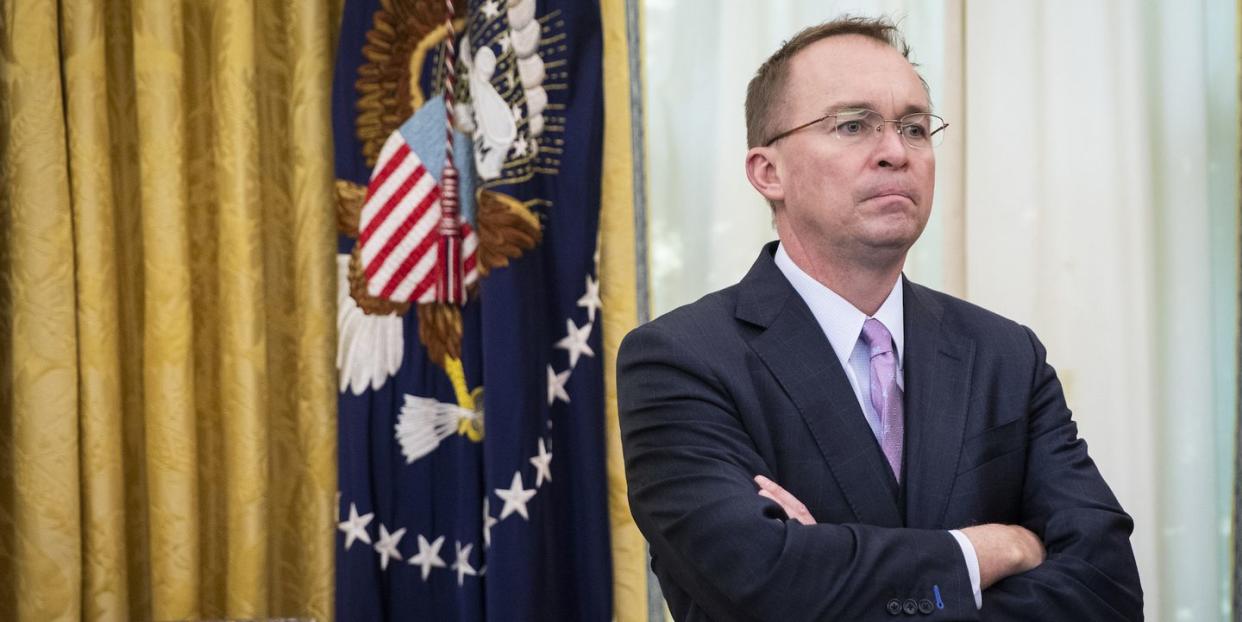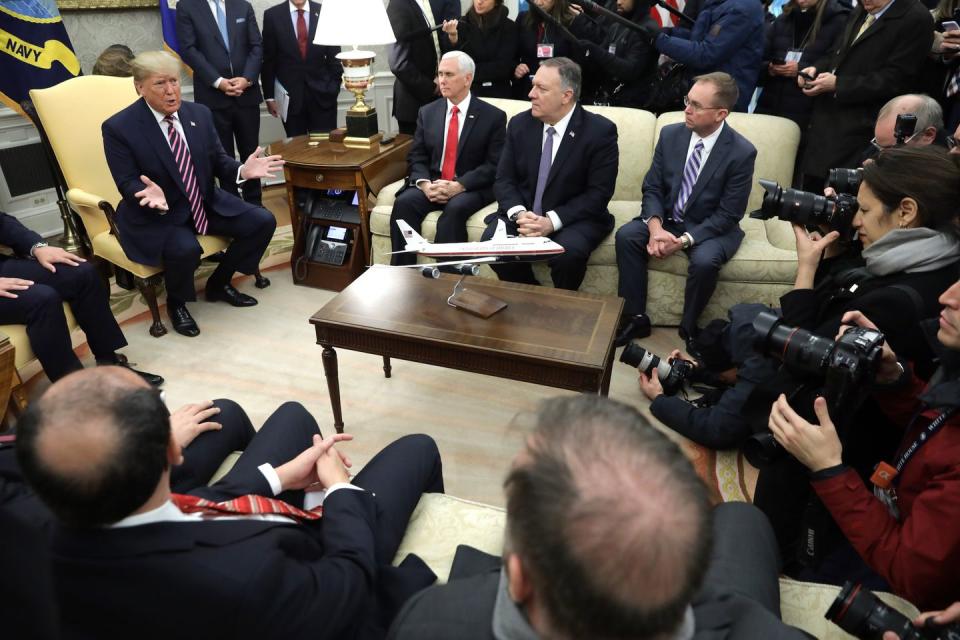Mick Mulvaney Is Getting Fed to the Wolves on Ukraine

(Occasional Musical Accompaniment To This Post)
This latest account of how everyone is scrambling for the ratlines down at Camp Runamuck leaves me with two distinct impressions: a) it is beyond foolish to cancel your subscription to The New York Times based on the the fact that a couple of people have set up landfills on the op-ed page; and b) that Nancy Pelosi is playing this whole impeachment thing like a Stradivarius. Just figuring out how and why this information arrived at the Times at this particular moment is entertaining enough—how long various people had to grapple for the flare gun is worth a long spell of speculation. But, however it got loose, the information is an extraordinary look at how influential people come apart at every nail, to borrow a phrase from Neil Young.
What emerges is the story of how Mr. Trump’s demands sent shock waves through the White House and the Pentagon, created deep rifts within the senior ranks of his administration, left key aides like Mr. Mulvaney under intensifying scrutiny — and ended only after Mr. Trump learned of a damning whistle-blower report and came under pressure from influential Republican lawmakers.
OK, so we all knew that.
Opposition to the order from his top national security advisers was more intense than previously known. In late August, Defense Secretary Mark T. Esper joined Secretary of State Mike Pompeo and John R. Bolton, the national security adviser at the time, for a previously undisclosed Oval Office meeting with the president where they tried but failed to convince him that releasing the aid was in interests of the United States.

By late summer, top lawyers at the Office of Management and Budget who had spoken to lawyers at the White House and the Justice Department in the weeks beforehand, were developing an argument — not previously divulged publicly — that Mr. Trump’s role as commander in chief would simply allow him to override Congress on the issue. And Mr. Mulvaney is shown to have been deeply involved as a key conduit for transmitting Mr. Trump’s demands for the freeze across the administration.
Wait. We didn’t know that. Suspected, sure, but now, it seems, people are giving up other people wholesale.
Mr. Mulvaney is said by associates to have stepped out of the room whenever Mr. Trump would talk with Mr. Giuliani to preserve Mr. Trump’s attorney-client privilege, leaving him with limited knowledge about their efforts regarding Ukraine. Mr. Mulvaney has told associates he learned of the substance of Mr. Trump’s July 25 call weeks after the fact.
I’m sorry, but this absolutely is Mob behavior. Send the witness out of the room to preserve the privilege? The president* learned well from all his Mob-adjacent mentors—hello, Roy Cohn—and all his Mob-adjacent businesses. And it looks at the moment like Mick Mulvaney is being fed to the wolves.
On Sept. 10, the day before Mr. Trump changed his mind, a political appointee at the budget office, Michael P. Duffey, wrote a lengthy email to the Pentagon’s top budget official, with whom he had been at odds throughout the summer about how long the agency could withhold the aid. He asserted that the Defense Department had the authority to do more to ensure that the aid could be released to Ukraine by the congressionally mandated deadline of the end of that month, suggesting that responsibility for any failure should not rest with the White House. Forty-three minutes later, the Pentagon official, Elaine McCusker, hit send on a brief but stinging reply. “You can’t be serious,” she wrote. “I am speechless.”
You and me both, Ms. McCusker. But maybe we should be used to this foolishness by now.
Typical of the Trump White House, the inquiry was not born of a rigorous policy process. Aides speculated that someone had shown Mr. Trump a news article about the Ukraine assistance and he demanded to know more. Mr. Vought and his team took to Google, and came upon a piece in the conservative Washington Examiner saying that the Pentagon would pay for weapons and other military equipment for Ukraine, bringing American security aid to the country to $1.5 billion since 2014.
And, when the time to bet comes around again, Madame Speaker checks again. Check, check, check. The rest of the folks at the table start sweating.
Respond to this post on the Esquire Politics Facebook page here.
You Might Also Like

